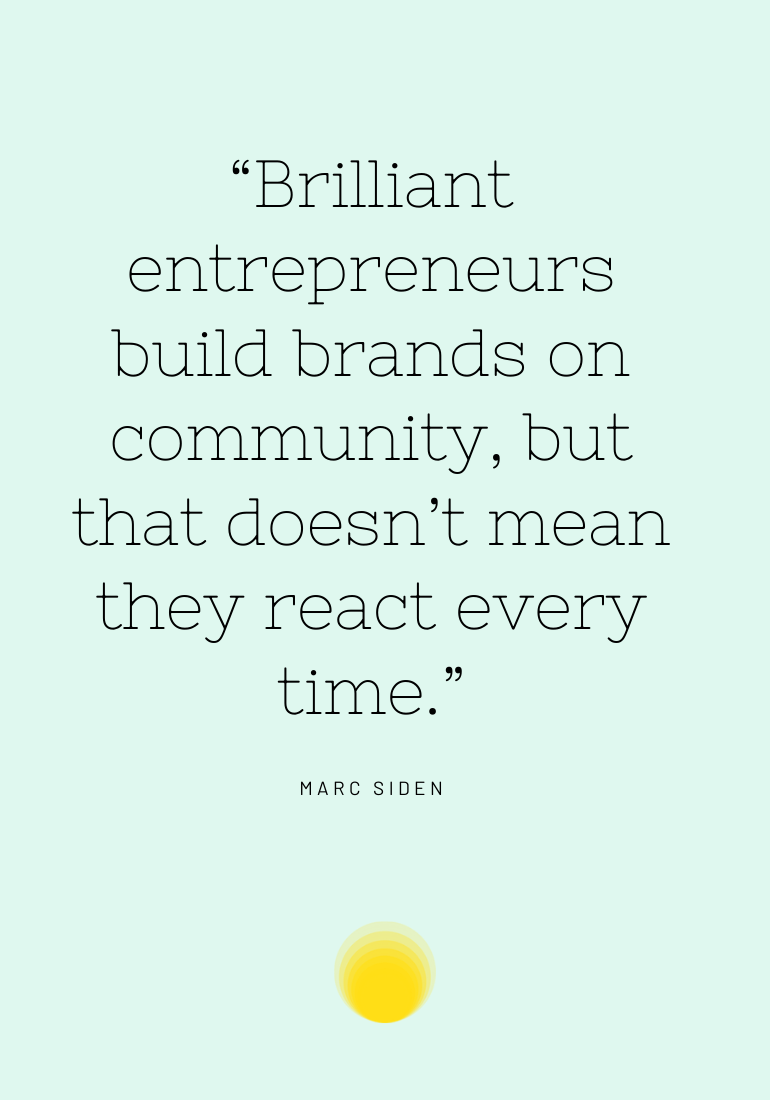Avoid Squirrel Syndrome: Advice on Switching Careers and Staying Agile from an Entrepreneur
May 4, 2020

tips for switching careers jobs
A long time ago (3.5 years), in another world, I was a television news anchor. If you’ve been hanging out with me here for a while, you know that. If you don’t, now you do! I worked my ass off to get that job–unpaid internships; part-time jobs with production companies while in college; nights spent trailing reporters to learn the job; many, many holidays spent away from my family… I did a lot for that job because I wanted it. And I loved it… truly, it was a calling more than a job… until I didn’t.
Avoid Squirrel Syndrome: Advice on Switching Careers and Staying Agile from an Entrepreneur
The story of how I reached that point is a post in and of itself (which is already published, in a coupleversions), but I’ve since become kind of evangelical about telling women to trust their guts when it comes to Big Decisions in life. It’s truly never wrong.But I start with that story because it leads to the topic I wanted to dive into a little more today–switching lanes.Changing careers, or as we like to more fancily describe it these days, “pivoting,” is common.
Anecdotally, most women I know go through a massive career shift after kids come into the picture because, well, kids. And no sleep. And the lots and lots of money they cost.
So let’s get into some specific pointers, whether you’re entering into a new chapter due to motherhood or some other life change. Here’s Some Advice That Helped Me When My Career Changed.
Marc Siden switched from a career in real estate to a career in the beverage industry, co-founding the sparkling CBD water company Cloud Water Brands, and learning a few lessons along the way.I just interviewed him for my podcast (hear the whole thing here), and he shared advice that was too good to not pass along.
Take It Slow to Start
Note: This advice is from the perspective of an entrepreneur launching a brand, product or company.When you’re starting out, it’s good to go slow to hone in on what it is you’ll offer. And more importantly, how are you going to do it differently from everyone else in your space? You don’t have to have those answers right away–chances are, you won’t–but keep that as your guiding star.Like Marc said in the interview, “Go painfully slow so that you can go fast later.”
Multiple People, One Vision

You won’t be able to do everything. (Trust me, I tried.) Find people who can elevate your brand or company with their own designated set of skills that you don’t have.This means knowing your strengths, and being willing to learn more about how to tackle the skills you lack, or hire out.I know, I know. It’s expensive. Apps like Upwork have been tremendously helpful for me in the past to hire out talent freelance for things like graphic or logo design that I don’t have the ability, or time, to tackle by myself.
Don’t chase every squirrel
I have to remind myself of this every. Day. I am a squirrel chaser. I see something working for someone else, and the process goes something like this:1 – Berate myself for not being as good as other person2 – Think about what I need to do to get better3 – Get frustrated, realizing that I should focus rather than chase down every single growth opportunity4 – End up back at the beginning
Take it from me: Avoid Squirrel Syndrome at every cost.
And if your job involves listening to feedback, this is more great advice from Marc: “Brilliant entrepreneurs build brands on community, but that doesn’t mean they react every time.”While customer feedback is important, you can’t make everyone happy. Say that again: You won’t—you can’t—make everyone happy.This brings us to the last piece of advice Marc had that is worth saving:“Be exceptional at one thing before you go to another.”
Every company, and every brand, is a work in progress.
If you’re a fellow second-chapter’er, first let me congratulate you on taking a step in a new direction. You’re badass.I hope this advice sends you on our way with a little more bravery and wisdom.
Listen to my Interview with Marc Siden, from Cloud Water Brands, here:
© 2022 WGT Designed by leche studio
PRIVACY & TERMS
CONNECT
NAVIGATE
Home
Blog
Work With Me
More From Us
Want to be the first to get the latest updates and news?
About
Podcast
Contact